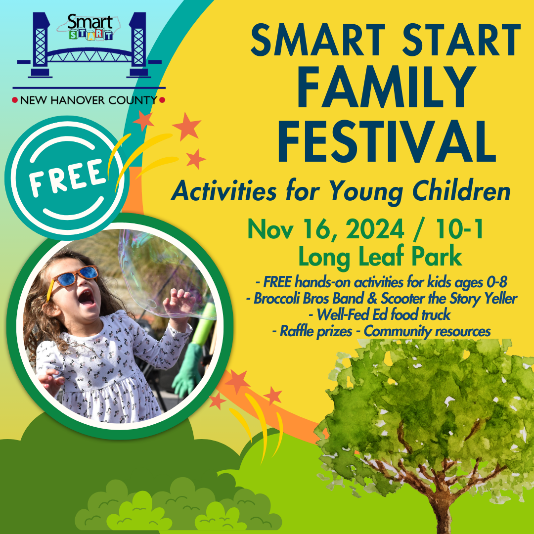In this 3 hour credit training workshop childcare facilitators will receive
1. Methods to foster children's social, emotional, and cognitive development through interactive music and creative play skills
2 . Ideas on how to generate age appropriate lesson plans incorporating the use of arts and craft ideas that foster learning
3 Inspirational handouts and resources
creative puppet play and music are two of the best ways to foster physical, intellectual development and well as social & emotional development
Schedule
Introduction (15 mins): Welcome and overview
Interactive Session (60 mins): Engaging activities with puppets and music to build neural connections.
learning about creative play methods and why they work
Break (15 mins)
Hands-On brainstorming Workshop (60 mins): Participants create their own lesson plans and sort through ideas that work best for their class
Q&A and Closing (30 mins): Discussion and feedback.
Pricing : The 3 hour course is $300 (Wilmington NC area )and includes all materials and handouts for up to 20 participants
discounts available with pairing of a quarterly in school music enrichment programming please inquire for out of town travel costs
A virtual course offering is coming soon please email if interested
portcityartist@gmail.com
Statement on Techniques for Adult Learning
Effective adult learning requires approaches tailored to the unique needs, motivations, and experiences of adult learners. Unlike children, adults bring a wealth of prior knowledge and practical experience to the learning process. The following techniques are particularly effective in fostering meaningful learning experiences for adults:
1. Active Participation: Adults learn best when they are actively engaged in the learning process. Interactive methods such as discussions, group activities, case studies, and hands-on exercises allow learners to apply concepts in real-time, making the material more relevant and memorable.
2. Relevance to Real-Life Applications: Adults are motivated by content that is immediately applicable to their personal or professional lives. Linking lessons to real-world scenarios or challenges ensures the material resonates with learners and meets their practical needs.
3. Acknowledging Prior Knowledge: Adult learners bring diverse experiences and expertise to the table. Facilitators should create opportunities for learners to share and build upon this knowledge, fostering a collaborative and enriching environment.
4. Problem-Based Learning: Adults thrive on solving practical problems. Presenting scenarios or challenges that require critical thinking, collaboration, and decision-making can enhance engagement and deepen understanding.
5. Flexible Learning Formats: Recognizing the diverse schedules and responsibilities of adult learners, offering flexible learning options, such as online courses, modular content, or self-paced learning, is essential to support participation and retention.
6. Goal-Oriented Instruction: Adults often pursue learning with specific objectives in mind. Structuring sessions with clear goals and outcomes helps learners stay focused and motivated.
7. Respect and Empowerment: Respect for the autonomy and input of adult learners is key. Encouraging questions, valuing contributions, and allowing for self-direction build trust and increase confidence in the learning process.
8. Experiential Learning: Adults benefit greatly from experiential methods such as role-playing, simulations, and real-life projects. These techniques allow learners to practice new skills in a safe environment and reflect on their experiences.
9. Feedback and Reflection: Constructive feedback and opportunities for self-reflection are critical components of adult learning. Regular feedback helps learners identify areas for improvement, while reflection enables them to internalize new knowledge and skills.
10. Incorporation of Technology: Leveraging technology, such as learning management systems, interactive tools, and multimedia resources, can enhance the learning experience by catering to diverse learning styles and providing additional resources.
Effective adult learning requires approaches tailored to the unique needs, motivations, and experiences of adult learners. Unlike children, adults bring a wealth of prior knowledge and practical experience to the learning process. The following techniques are particularly effective in fostering meaningful learning experiences for adults:
1. Active Participation: Adults learn best when they are actively engaged in the learning process. Interactive methods such as discussions, group activities, case studies, and hands-on exercises allow learners to apply concepts in real-time, making the material more relevant and memorable.
2. Relevance to Real-Life Applications: Adults are motivated by content that is immediately applicable to their personal or professional lives. Linking lessons to real-world scenarios or challenges ensures the material resonates with learners and meets their practical needs.
3. Acknowledging Prior Knowledge: Adult learners bring diverse experiences and expertise to the table. Facilitators should create opportunities for learners to share and build upon this knowledge, fostering a collaborative and enriching environment.
4. Problem-Based Learning: Adults thrive on solving practical problems. Presenting scenarios or challenges that require critical thinking, collaboration, and decision-making can enhance engagement and deepen understanding.
5. Flexible Learning Formats: Recognizing the diverse schedules and responsibilities of adult learners, offering flexible learning options, such as online courses, modular content, or self-paced learning, is essential to support participation and retention.
6. Goal-Oriented Instruction: Adults often pursue learning with specific objectives in mind. Structuring sessions with clear goals and outcomes helps learners stay focused and motivated.
7. Respect and Empowerment: Respect for the autonomy and input of adult learners is key. Encouraging questions, valuing contributions, and allowing for self-direction build trust and increase confidence in the learning process.
8. Experiential Learning: Adults benefit greatly from experiential methods such as role-playing, simulations, and real-life projects. These techniques allow learners to practice new skills in a safe environment and reflect on their experiences.
9. Feedback and Reflection: Constructive feedback and opportunities for self-reflection are critical components of adult learning. Regular feedback helps learners identify areas for improvement, while reflection enables them to internalize new knowledge and skills.
10. Incorporation of Technology: Leveraging technology, such as learning management systems, interactive tools, and multimedia resources, can enhance the learning experience by catering to diverse learning styles and providing additional resources.


Thank you!
